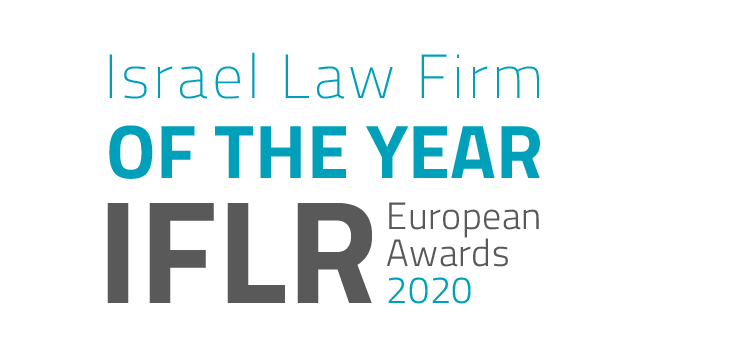Click here to read the legal update in Hebrew
Amendment 242 to the Israeli Income Tax Ordinance – Chapter E2
On March 13, 2018, the Israeli Tax Authority (“ITA”), published a memorandum (the “Memorandum”), regarding the ramifications of Amendment 242 to the Israeli Income Tax Ordinance (the “Amendment” and the “Ordinance”, respectively), in regard to various tax aspects of corporate share capital restructurings. The highlights of the Amendment, which took effect on August 6, 2017, as explained in detail in the Memorandum, include the following:
The restrictive period:
In order to enjoy tax benefits afforded by the tax-free reorganization provisions in chapter E2 of the Ordinance, a shareholder cannot sell shares it receives in a reorganization effected under chapter E2 for two years after the transaction (the “Restrictive Period”). The Amendment clarifies that the Restrictive Period begins on the date of the restructuring and applies to all forms of restructuring detailed in chapter E2.
Changes of shareholders’ rights during the Restrictive Period:
A common goal of mergers and acquisitions is to raise additional funding for the target company. Therefore, in order to facilitate capital raising transactions, the Amendment mitigates certain restrictions regarding the sale and allocation of rights and shares during the Restrictive Period. Accordingly, the Amendment provides that during the Restrictive Period, rights holders (i.e., holders of shares and instruments convertible into shares) are allowed to sell their rights (and the target company may allocate new rights), as long as all of the original rights holders still hold collectively 25% of the rights in the target company (the “Limitation”). As a result, some rights holders may even sell all of their rights if the Limitation is met.
In respect to publicly traded companies, the Memorandum clarified, with regard to the Limitation, that rights held by the public will be disregarded in determining whether the Limitation is satisfied.
For example, in view of the Amendment, a controlling shareholder that holds 80% of the rights in a public company may sell a portion of its rights so that it will hold no less than 20% of the rights in the company (25% out of 80%).
The Amendment also eliminated all restrictions (including the Limitation) under chapter E2 in regard to a merger between a parent company and its fully owned subsidiary.
Research and Development Companies:
With respect to companies that are classified as “research and development (“R&D”) companies” under the Ordinance, the Amendment offers two alternatives for restructuring that would facilitate additional capital investment: first, the Limitation described above; and second, the allocation of new rights without any limit on the dilution of existing rights holders.
Additional changes:
- The addition of section 105J(1) to the Ordinance enables companies to effect multiple restructurings during the Restrictive Period, subject to the approval of the regional tax director (the “Director”), without violating chapter E2.
- From the effective date of the Amendment, consideration for rights in the target company may include – in addition to rights in the acquiring company (pursuant to chapter E2) – additional compensation in cash, under two conditions: first, that the rights holder (and his relatives) sell all of their rights in the target company; and, second, that the cash payment shall not exceed 40% of the entire consideration paid, and must be allocated pro rata to each of the rights holders of the target company. Cash payments will be taxed as taxable income on the day of the merger.
- According to revised section 104C, a company may transfer all of the shares of a subsidiary to its parent company, even in a case where there is more than one parent company
- Market value ratio: under the Amendment, the ratio between the respective market value of the target company and the acquiring company has been increased to 1:9, from 1:4 before the Amendment.
- Moreover, in light of the Amendment, companies can effect restructurings under chapter E2 even if their business activities are not taxable under section 2(1) of the Ordinance. Such restructuring is subject to the prior approval of the Director, which is likely to be granted if the Director is convinced that the restructuring is executed for economic purposes and not for tax avoidance. Thus, all business activities before the restructuring are expected to continue after the restructuring and to give rise to taxable income.
Accumulated losses:
- The addition of section 103H(g1) provides that the use of accumulated losses that originated in the acquiring company will not be subject to any limitation under section 103H, as long as the market value of the acquiring company is at least nine times that of the target company.
- Section 103H will now apply to losses that originated abroad as well as to losses originating in Israel.
- The use of accumulated losses is permitted without limitation in splits/spinoffs under section 105E.
In conclusion, Amendment 242 to the Ordinance provides several new opportunities to companies and shareholders wishing to effect share restructurings. The Amendment can result in significant tax benefits in applicable transactions.
For further information please feel free to contact:
Adv. Anat Shavit | ashavit@fbclawyers.com | +972.3.6944203

